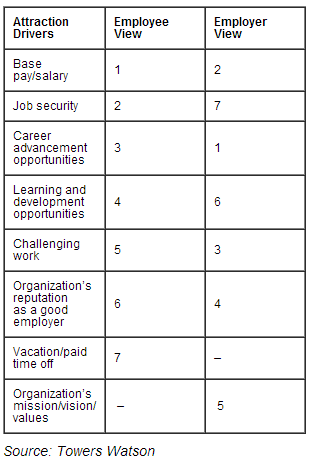I thought it was time that I randomly start listing mistakes we make in HR and letting those coming into HR what not to do. So, here you go, enjoy!
10 mistakes you don’t want to make in HR:
1. Hiring someone who reschedules their drug test more than once. I’m willing to give someone one reschedule, stuff happens. After one, if you’ve got a druggie trying to find out how to keep his Mom’s pee warm long enough to make it to the testing center.
2. Creating a leadership training program when it’s really one bad leader who just needs to be canned. Everyone knows who the problem is, and now ‘HR’ is making everyone go through training one person needs. They hate us for this. Just shoot the one bad leader and move on.
3. Changing policy or making a new policy, when it’s really one idiot who is taking advantage of the current situation. See above. We do this because *93% of HR Pros and Leaders are conflict avoidant (*Sackett Stats, it’s probably higher!). Come join the 7% of us who aren’t, this side of the pool is really enjoyable!
4. Designing health benefits that are better for you, but worse for everyone else. Don’t tell me this doesn’t happen! It happens all the time. The person in charge of plan design sees something that will help them, and believes it will also help everyone else. Oh, look! We now can go see the Chiropractor for massages, but I can’t get my kid the name brand Asthma medicine he needs.
5. Talking about how much less money you make in HR, as compared to a bad performer in any other area. No one cares that you make $25K less than Mark in sales who is a buffoon. It just makes you look bad and petty.
6. Throwing a fit about hiring an executives kid, or anyone else they want you to hire. Just hire the executives kid. This is not a battle you want to fight, it’s not worth it. In the grand scheme of things this one hire doesn’t mean a thing. The kid will either be good, average or bad. Just like the rest of hires we make.
7. Designing a compensation plan which, by peer group, puts you higher than other functions. I don’t care what the ‘Mercer’ data says, you shouldn’t put out there that you should be making $15K more than the person in Finance at your same level. No one believes you, and they don’t trust you can handle this when the data doesn’t seem right. This is especially sticky for Compensation Pros, who always believe they should be paid higher within the HR function.
8. Thinking you can be ‘friends’ with people you work with, outside of work. I’m not saying it can’t happen, it might. It just becomes really bad when you have to walk into your BFF Jill’s office and ‘can’ her one day. You can have very friendly relationships at work without inviting those folks over to the office for Girls Night Out.
9. Believing it’s not your job to do something. In HR we fill the voids left by every other function. It’s our job to do everything, especially those things no one else wants to do. Never believe something is not your job! It is. Plus, that actually adds value to the organization. Be the one function that doesn’t bitch and complain when they need to do something that isn’t on their job description!
10. Telling an executive they can’t do something because ‘we’ll get sued’. Our job in HR is not to tell executives, or anyone else, they can’t do something. It’s our job to tell them how they can get it done, while making it less risky to the overall organization.
What mistakes do you see HR makes?



